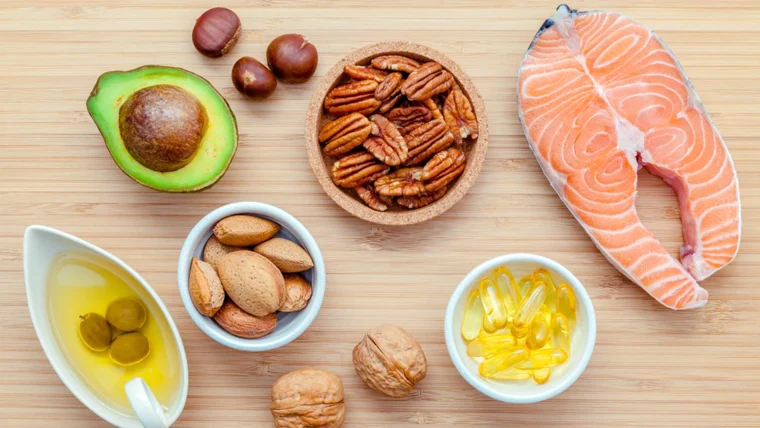How to Choose Healthy Fats for Diabetics
Choosing the right types of fats is essential for diabetics to maintain heart health, manage cholesterol levels, and support overall well-being.
Here is a comprehensive guideline on how to incorporate healthy fats into your diet:
Opt for Unsaturated Fats:
Unsaturated fats are known to improve blood cholesterol levels, reduce inflammation, and stabilize heart rhythms.
They are found in plant-based oils, nuts, seeds, and fish. Replace saturated and trans fats with unsaturated fats by using olive oil, canola oil, or sunflower oil for cooking and in dressings.
Include Omega-3 Fatty Acids:
Omega-3 fatty acids are a type of polyunsaturated fat that have anti-inflammatory properties and can help lower the risk of heart disease, which is crucial for diabetics.
Fatty fish such as salmon, mackerel, sardines, and trout are excellent sources of omega-3s. Aim to eat at least two servings of fatty fish per week.
Choose Avocado , Nuts and Seeds:
Avocados are rich in monounsaturated fats, which can help lower bad cholesterol (LDL) levels while maintaining good cholesterol (HDL) levels.
Incorporate avocado into your meals by adding it to salads, sandwiches, or smoothies.
Nuts and Seeds:
Nuts like almonds, walnuts, and pistachios, as well as seeds such as chia seeds, flaxseeds, and pumpkin seeds, are packed with healthy fats.
They are also high in protein and fiber, making them a satisfying addition to your diet.
Choose unsalted varieties to keep sodium intake in check and be mindful of portion sizes since nuts and seeds are calorie-dense.
Use Nut Butters and Cook with Healthy Oils:
Natural nut butters—such as almond butter or peanut butter—provide a good dose of healthy fats.
Check labels to ensure there are no added sugars or hydrogenated oils.
Use nut butters as a spread on whole-grain toast, mixed into oatmeal, or as a dip for fruits and vegetables.
Cook with Healthy Oils:
Use cooking oils that are high in unsaturated fats, such as olive oil, avocado oil, and canola oil.
Avoid oils high in saturated fats like coconut oil and palm oil. For cooking at high temperatures, avocado oil is a good option because of its high smoke point.
Limit Saturated Fats and Avoid Trans Fats:
Saturated fats can raise levels of LDL cholesterol, increasing the risk of heart disease.
Reduce your intake of saturated fats by choosing lean cuts of meat, trimming visible fat, and opting for low-fat or fat-free dairy products.
Avoid heavily processed foods known for high saturated fat content.
Avoid Trans Fats:
Trans fats are unhealthy fats that raise LDL cholesterol and lower HDL cholesterol.
They are often found in margarine, shortening, and many processed foods. Check ingredient lists for “partially hydrogenated oils” and avoid those products.
Fortify with Flaxseeds and Read Food Labels:
Flaxseeds are an excellent source of alpha-linolenic acid, a type of omega-3 fatty acid.
Ground flaxseeds can be sprinkled over cereals, yogurt, or added to baked goods to boost your intake of healthy fats.
Read Food Labels:
When shopping, carefully read food labels to identify sources of healthy fats. Look for items with low saturated fat content and without trans fats.
This practice can help you make informed choices that align with your heart-healthy eating plan.
Incorporating these guidelines into your diet can help you manage diabetes more effectively while promoting optimal heart health.
As always, consult with a healthcare provider or dietitian to tailor dietary changes to your specific health needs.
